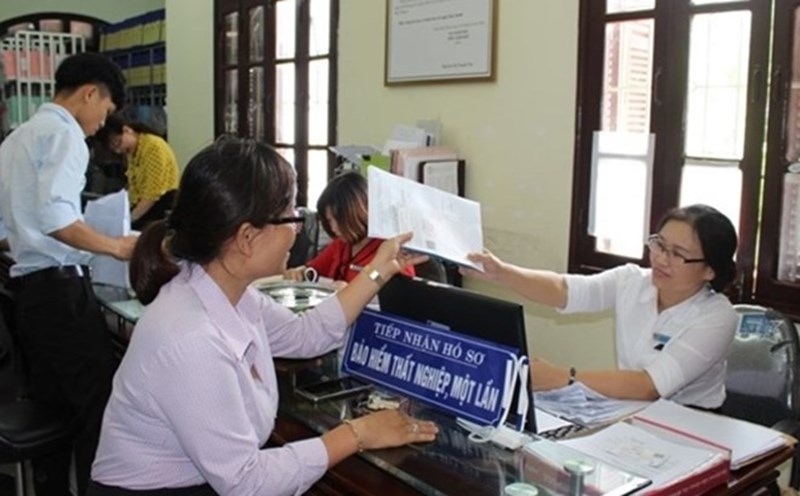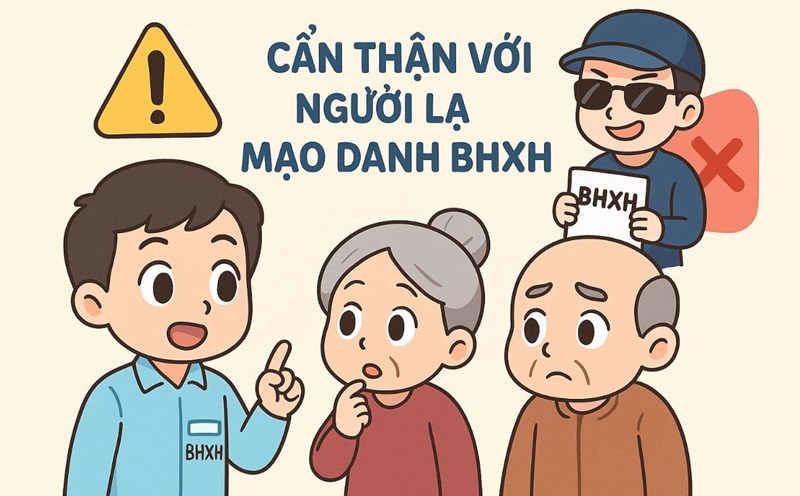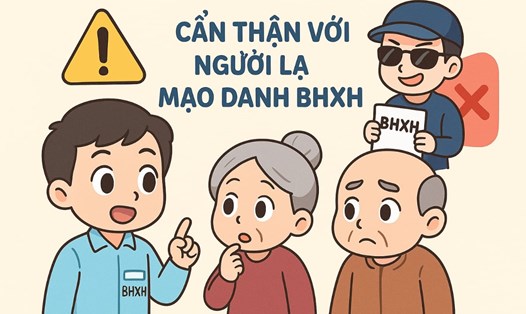Increasing inspection and supervision mechanisms
The Law on Social Insurance and Health Insurance takes effect from July 1, 2025. Although the law has strict regulations, increasing responsibility for late and evasion of social insurance payment. However, according to experts' analysis, the enforcement agency sometimes has a state of hesitation and hesitation. This has caused the situation of late and evasion of social insurance payment to continue, seriously affecting the rights of employees.
Sharing with Lao Dong Newspaper on the sidelines of the 10th Session of the 15th National Assembly, Ms. Nguyen Thi Viet Nga - Deputy Head of the National Assembly Delegation of Hai Phong City - said that there needs to be a drastic solution to thoroughly resolve the problem of late and evasion of social insurance payment that has caused pain in public opinion in recent times.
Delegate Nguyen Thi Viet Nga pointed out 3 solutions to overcome the situation of late and evasion of social insurance payment. First, institutionally, it is necessary to carefully review the sanctions. Vietnam can learn from international experience in collecting social insurance. Handling enterprises violating social insurance as tax violations. To do this, according to Ms. Nga, it is necessary to connect data between sectors.
"For example, between social insurance and tax, banks and related sectors with the police. Because data is not connected, we have a very difficult time checking and monitoring and require a lot of human resources and need to do it manually. If we clean up data, connect between sectors, and manage it will be more systematic, methodical and strict. Along with that, it is necessary to strengthen and foster the implementation capacity of the staff" - Ms. Nga said.
Second, it is necessary to build a system of sanctions strong enough to deter violating businesses. At the same time, strengthen propaganda so that businesses, especially small and medium enterprises, clearly understand that paying social insurance and health insurance is a duty, a responsibility, not only a responsibility to employees but also a social responsibility, a long-term investment for development.
The third solution mentioned by Ms. Nga is to increase the monitoring mechanism for social insurance agencies. "It is necessary to increase the authority and functions of the inspection team of the Social Insurance sector. Along with that is an inter-sectoral coordination mechanism and other competent authorities to supervise the implementation of this agency" - Ms. Nga said.
National Assembly delegate Pham Van Hoa said that the Social Insurance Law has stipulated very clearly and specifically the prohibitions, rights, as well as the responsibilities and obligations of all parties. "This is something we are very concerned about, especially the rights of workers who have paid social insurance in the past" - delegate Pham Van Hoa said.
To solve the problem of businesses being slow to pay social insurance for a long time, affecting the rights of employees, according to delegate Pham Van Hoa, first and most importantly, the social insurance agency must take drastic action and strictly implement the provisions of the law. It is necessary to clarify the responsibility for prolonged prolonged prolonged payment and evasion of social insurance payment. There cannot be any respect or cover-up for businesses.
Actively collecting social insurance to restore the confidence of workers
Prof. Dr. Giang Thanh Long - senior lecturer at the National Economics University - said that the prolonged situation of late and evasion of social insurance payment not only directly affects the rights of employees, but also has many potential long-term consequences for the social security system. When workers see that paying social insurance does not provide real protection, they will have the mentality of "fulfilling" without considering this an advantage that is closely linked to their lives.
According to Prof. Dr. Giang Thanh Long, it is necessary to strictly apply sanctions, especially criminal sanctions for acts of evasion of social insurance payment, similar to tax violations. Vietnam Social Insurance must play a key role in collecting and handling outstanding debts, while strengthening coordination with tax authorities and related units. Data digitalization and standardization work needs to be promoted to closely monitor employers and publicize information about enterprises that evade and are late in paying.
Discussing this issue with Lao Dong Newspaper, Vietnam Social Insurance admitted that the situation of late payment, evasion of social insurance, health insurance, and unemployment insurance payment across the country is still happening, mainly concentrated in non-state enterprises (private enterprises, small and micro enterprises, etc.).
In the coming time, Vietnam Social Insurance will advise the Ministry of Finance to issue a document to the Secretaries and Chairmen of provinces and cities to continue to strengthen leadership, direction and inspection of compliance with local social insurance laws. Social Insurance will direct Social Insurance in localities to organize the establishment of interdisciplinary teams to directly urge, inspect, check and require business owners to strictly comply with the payment and payment of social insurance, health insurance, and unemployment insurance. Social Insurance in localities also needs to regularly send staff directly to enterprises to urge business owners to pay social insurance and health insurance on time.
Delegate Dinh Ngoc Quy (Gia Lai Delegation) said that the Government's Report sent to the National Assembly on the implementation of social insurance policies as well as the management of social insurance funds in 2024 shows that the number of units and enterprises participating in social insurance for employees is only about 600,000, of which 550,000 are non-state-owned enterprises and about 30,000 are FDI units and enterprises. In addition, the total amount of money that employers are still owed and late in paying for social insurance is also large. Among the average salary and income for compulsory social insurance contributions of non-state-owned enterprises for more than 7,600,000 employees, it is only about 5,800,000 VND and about 900,000 VND lower than the general average. The FDI sector also reached more than 7,000,000 VND for the first time in 2024 with a total of more than 5,000,000 workers participating.
Based on the Resolution of the National Assembly, the 2024 Law on Social Insurance, the Government issued Decree 158 and includes regulations to resolve policies for employees because businesses are unable to pay social insurance before July 1, 2024.
"Therefore, I really hope the Government will direct timely implementation to help reduce difficulties for workers. At the same time, in the coming time, along with implementing breakthrough solutions and policies to develop the private economic sector, government private enterprises need to pay attention to the quality of social security in this sector, helping to develop more sustainably in terms of both quality and quantity and helping workers enjoy the fruits of development, ensuring long-term social security" - delegate Dinh Ngoc Quy said.











